Get to know our new faculty members joining the college this year!
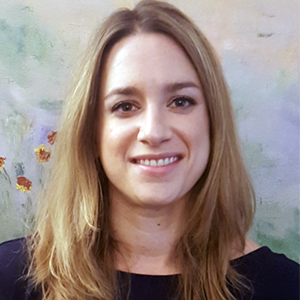
Anna Lorraine Rosen
Assistant Professor, Department of Astronomy
Anna Rosen is a theoretical and computational astrophysicist whose research focuses on understanding star and galaxy formation. She uses numerical simulations to study the formation of massive stars and massive star clusters and is particularly interested in how stellar feedback — the injection of energy and momentum by young stars — shapes the interstellar medium and galaxies.
Prior to her arrival at SDSU, Anna was a joint National Science Foundation (NSF) Astronomy & Astrophysics Postdoctoral Fellow and UC Chancellor’s Postdoctoral Fellow at UC San Diego. She was also a NASA Einstein Postdoctoral Fellow and Institute for Theory and Computation Postdoctoral Fellow at Harvard University’s Institute for Theory and Computation and the Center for Astrophysics I Harvard-Smithsonian.
A native Californian, she is particularly happy to get to stay in California and be near family. In addition, she was a community college transfer student who transferred to UC Berkeley from Los Angeles Pierce College and therefore she is particularly excited to join the CSU system to help mentor and support incoming community college transfer students interested in majoring in Astronomy. Anna will also be a member of the Computational Sciences Research Center and looks forward to working with and advising both Astronomy and Computational Sciences students.
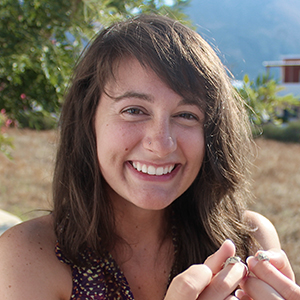
Kinsey Brock
Assistant Professor, Department of Biology
Kinsey Brock is a herpetologist and evolutionary biologist studying how human activities, urbanization, and climate change shape reptile and amphibian biology. She is particularly interested in how these cold-blooded creatures adapt to life in big, hot cities. Her lab will perform comparative studies on lizards and snakes from Greek islands that have either lived with human civilizations for millennia or in complete isolation, and explore evolutionary changes in behavior, morphology, and physiology in Italian wall lizards introduced from the coast of Sicily to Los Angeles, San Diego, and New York City.
A Michigander raised on a farm, Brock did not come into contact with lizards until a class trip to Madagascar while she was in art school at the University of Michigan. After obtaining her B.A. in Art & Design and B.S. in Program in the Environment, she stayed at the University of Michigan for her M.S. in Conservation Ecology and wrote her thesis on the evolution of Aegean island lizard anti-predator behavior. Since completing her Ph.D. at UC Merced, she has been a National Science Foundation Postdoctoral Fellow at UC Berkeley where she takes groups of undergraduates to study Greek island lizard evolution every summer. Brock is excited to join SDSU as the first urban evolutionary biologist and looks forward to developing classes and research opportunities for students to explore this new and exciting frontier in biology.
When she isn’t chasing lizards or writing grants you can find her in an art gallery or taking really long walks in the city.
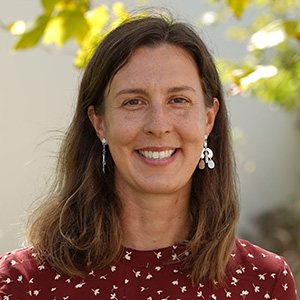
Teresa Monkkonen
Assistant Professor, Department of Biology
Teresa Monkkonen is new faculty in the department of biology, having started in January 2023. She was recruited as part of the NIH FIRST/FUERTE program, in the Cancer focus. Her research focuses on defining how the molecular biology of non-tumor cells influences breast cancer progression and advanced disease/metastasis.
Her future work will also include the molecular biology driving disparities in breast cancer etiology and outcomes. Teresa became passionate about molecular communication between different cell types when she did her PhD at Baylor College of Medicine studying mammary gland development, and subsequently moved to UCSF for postdoctoral research in breast cancer before coming to SDSU.
She is also passionate about teaching and mentoring the next generation of scientists, and increasing diversity in the biomedical sciences. When not in the lab, Teresa enjoys exploring the hiking and beaches in San Diego with her family, as well as reading.
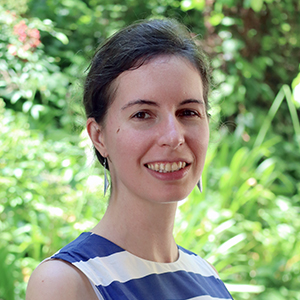
Laura-Isobel McCall
Associate Professor, Department of Chemistry and Biochemistry
Laura-Isobel McCall uses cutting-edge analytical chemistry instrumentation to answer critical biological questions. She seeks to define how metabolism changes spatially during infection, and how this drives disease symptom localization and chronic symptom persistence. She also builds on this knowledge to rethink the standard drug development pipeline.
McCall is passionate about ensuring that the insights generated from these cutting-edge technologies benefit underserved populations suffering from neglected tropical diseases. Neglected tropical diseases affect billions of people but often have limited awareness, investment or treatment options. Her group’s work on these diseases has the potential for direct, real-world impact. She is excited to be returning to San Diego after six years as a faculty member at the University of Oklahoma.
In her free time, McCall enjoys applying analytical precision to complex baking projects and going wild with savory dishes. When she’s not working or cooking, she’s usually reading or watching reality TV.
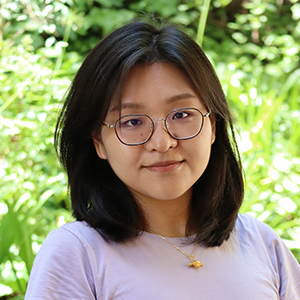
Xin Zhang
Assistant Professor, Department of Computer Science
Xin Zhang joined the Computer Science Department at San Diego State University as an assistant professor in Fall 2023. She received her Ph.D. degree in Data Sciences from Worcester Polytechnic Institute in 2023.
Her main research focuses are on artificial intelligence (AI) and spatial-temporal data mining with applications in smart cities and urban intelligence. She is particularly interested in: (1) human behavior analysis, decision making and embodied AI using deep learning approaches, and (2) spatial-temporal data mining with novel AI techniques for urban computing and smart cities. Her works appear in NeurIPS, KDD, ICDM, etc.
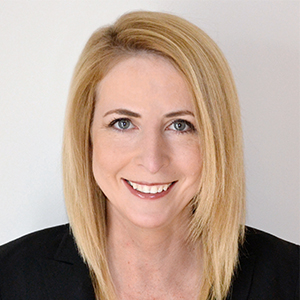
Jessica Whiteside
Chair and Professor of Earth and Environmental Sciences
Jessica is a broadly trained Earth scientist who uses molecular biosignatures entombed in rocks to gain unique and powerful insights into our planet’s dynamic past. She is especially interested in the interrelationship between the evolution of life and climate, on time frames ranging from hundreds of millions of years ago to the present, and into our warming future. She has published studies on the mechanisms of major extinctions, the resilience of ecological systems, transitions in microbial communities with changing oxygen conditions in the ancient oceans, the effects of changes in Earth’s orbit and carbon cycling on ancient climates, past hydrological regimes, and the role of ancient lake and wetland systems as sinks of carbon dioxide. Her work also includes forays into terrestrial analogues for potential life-favoring environments on ancient Mars. In addition, she has worked with policymakers and panels addressing climate change and looks forward to continuing her efforts on that front along with other global and regional environmental concerns, including the Salton Sea. The shrinking and heavily polluted Salton Sea has emerged as one the major environmental challenges in the southwest, posing threats to wildlife, communities living on the shores, and the growing lithium industry.
Jessica has served on the faculty of Brown University and the University of Southampton (England), and is excited to return to the USA to join SDSU as chair of the Department of Earth and Environmental Sciences. Growing up in over 30 different communities in the USA and abroad, she has a particular affinity for art and architectural salvage, string music, sailing, rock climbing, woodworking, and of course her constant companion, her three-year-old daughter and aquaphile, Josephine.
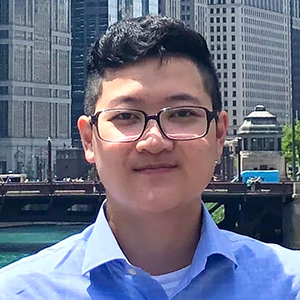
Dao Nguyen
Assistant Professor, Department of Mathematics & Statistics
Prior to SDSU, Nguyen-Truc-Dao Nguyen was an Assistant Professor at the University of Michigan, Ann Arbor, and continues to maintain a significant collaboration with UMich Professor Anthony Bloch. The completion of Dr. Nguyen’s Ph.D. took place at Wayne State University, under the esteemed guidance of Professor Boris Mordukhovich.
Dr. Nguyen’s research interests lie in the areas of optimization, control theory, data science, numerical analysis, nonlinear and variational analysis, dynamical systems, partial differential equations, statistics, computational mathematics, and their applications. In particular, Dr. Nguyen’s current research topic involves developing the method of finite difference (discrete) approximations for optimization problems, deriving necessary optimality conditions for local optimal solutions to these problems, implementing numerical algorithms, and applying them, especially, to the calculations in machine learning, deep reinforcement learning, artificial intelligence, bilevel sweeping processes, signal processing, sensor networks, network traffic analysis, inverse problems, sparse models, imaging sciences, medicine, and their applications.
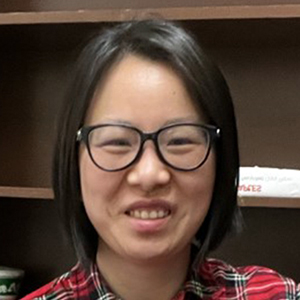
Xiyue Liao
Assistant Professor, Department of Mathematics & Statistics
Xiyue Liao is a statistician, with both applied and theoretical interests, which include nonparametric shape-restricted regression and inference, statistical software development, machine learning/data science, actuarial science, etc.
She received her PhD in Statistics in 2016 from the Department of Statistics at Colorado State University. Before joining SDSU, she was an Assistant Professor in the Department of Mathematics and Statistics at CSULB, mainly responsible for designing and teaching upper-division data science courses and advising graduate students’ theses and projects. Before that, she was a Postdoc Fellow in the Department of Statistics and Applied Probability at UCSB, and she was in charge of project-based mentoring courses that apply machine learning methods to build predictive models in R or Python with health insurance data sets provided by industry partners. She is looking forward to finding collaborative research opportunities with students and colleagues in her department and college at SDSU.
In her free time, Xiyue likes suspense or mystery stories, such as Alfred Hitchcock movies and Agatha Christie’s Miss Marple series. She also likes playing video games once in a while, such as “The Legend of Zelda: Breath of the Wild.”
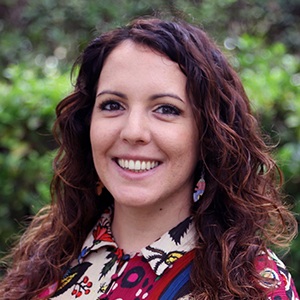
Valeria Barra
Assistant Professor, Department of Mathematics & Statistics
Valeria Barra is an applied mathematician with a B.Sc. and M.Sc. from the University of Siena, in her hometown of Siena, Italy, who earned a Ph.D. in applied mathematics at the New Jersey Institute of Technology (NJIT). Her work in scientific computing has crossed different areas of applied mathematics and computer science, mainly focusing on the numerical solutions of partial differential equations that can arise in fluid dynamics, solid mechanics, and other scenarios. Before and during her Ph.D. program, Valeria also conducted research in the industry, including physics-based fluid simulations used in the animation, movie, and video game industries at Pixar Animation Studios.
As a postdoctoral research associate at the University of Colorado at Boulder, and later as a research software engineer at Caltech, Valeria has contributed software to multiple open-source software projects and become passionate about community software, open-source and open-science best practices. She is excited to join SDSU as an Assistant Professor of Mathematics and Computational Sciences and collaborate with the interdisciplinary faculty in the Computational Science Research Center.
Representation of women in mathematics and computational science and engineering has always been a prominent thread in Barra’s career and led to increased interest in multiple areas of diversity, equity, and inclusion. These values have shaped her mentoring style and she plans to reflect these in the establishment of an inclusive research group at SDSU.
In her life outside of research, Barra loves listening to music, dancing, cooking, swimming, snorkeling, and spending time outdoors hiking with her cat.
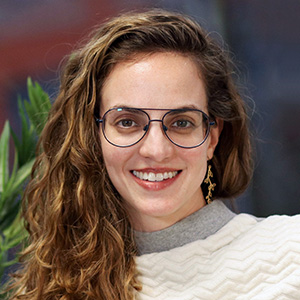
Sylvanna Vargas
Assistant Professor, Department of Psychology
Dr. Vargas’ research is focused on the amelioration of mental health disparities. The overarching goal of her work is to develop innovative and large-scale solutions that improve the landscape of mental health services for underserved youth experiencing depression and suicidality. Her translational research spans from basic science on the social determinants of mental health to the implementation of culturally and contextually responsive evidence-based interventions that mitigate inequities.
She conducts research on how intersectional discrimination can erode social connection and contribute to disparities in depression and suicide risk among sexual minority people of color. Her current work examines how interventions that enhance naturalistic social support and care linkage (e.g., Motivational Interviewing, SAFETY-A) can be adapted and implemented within non-specialty service sectors that reach youth with unmet mental health need (e.g., schools, peer-delivered helplines).
She is interested in the use of cutting-edge technology to support the at-scale implementation of these interventions.